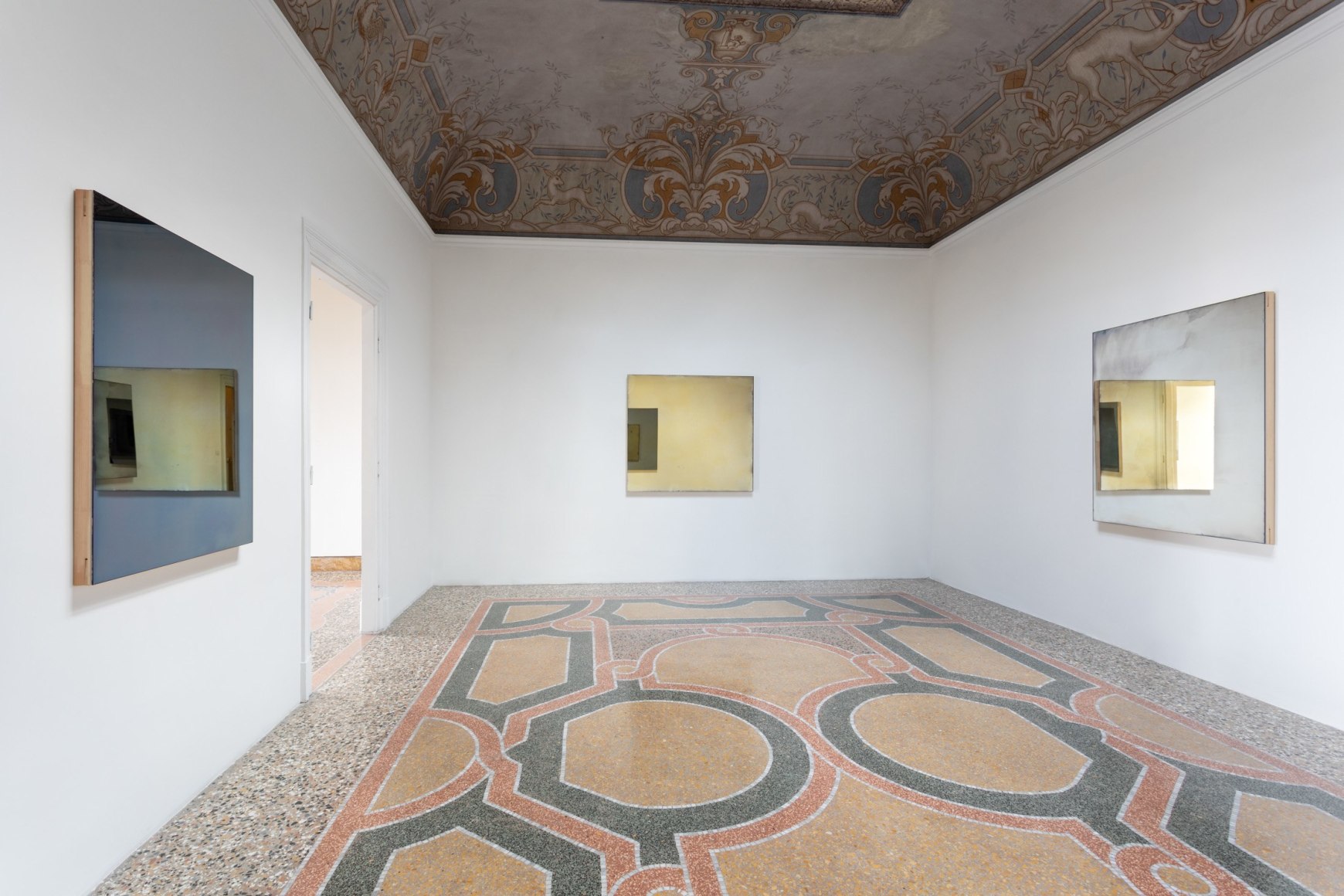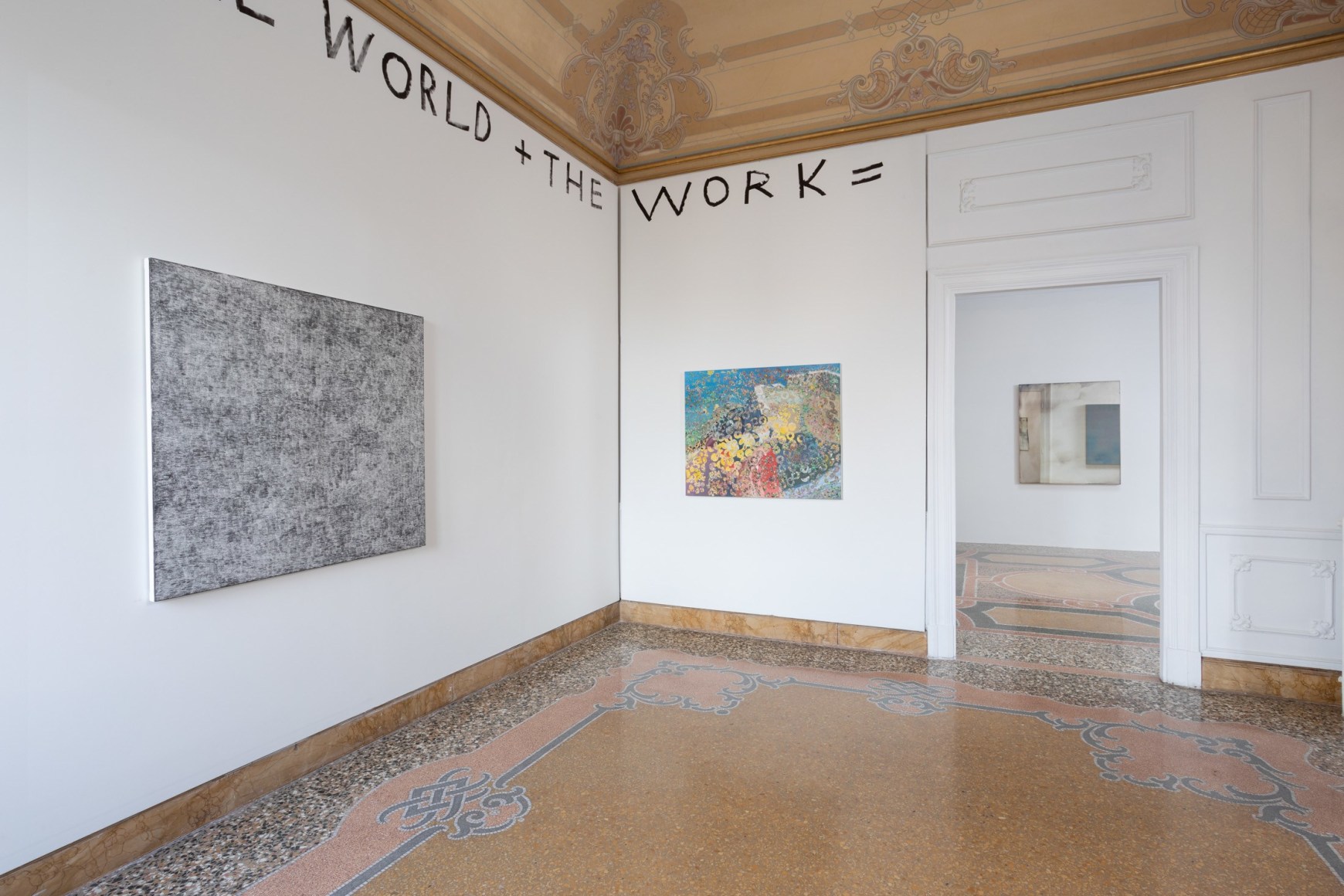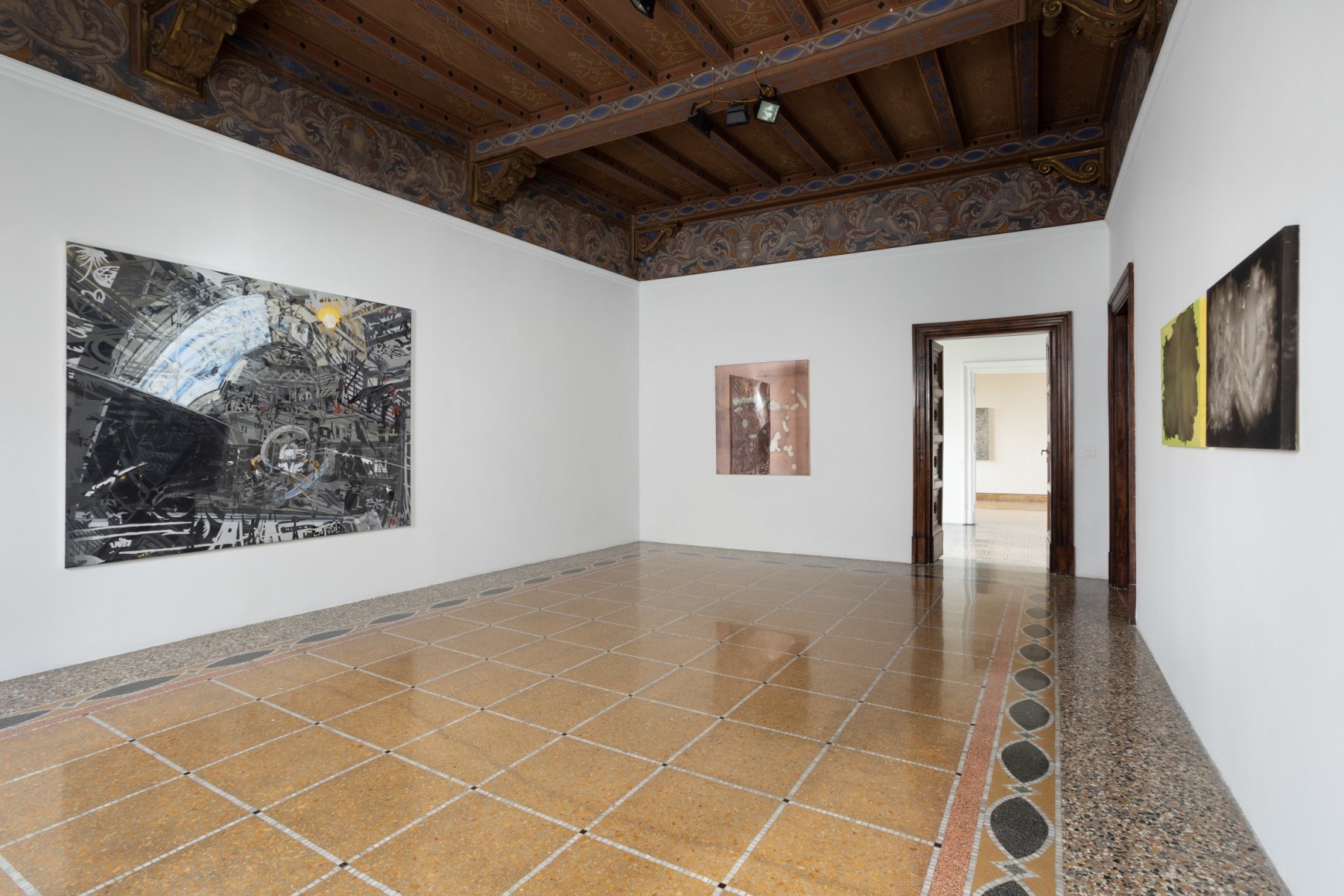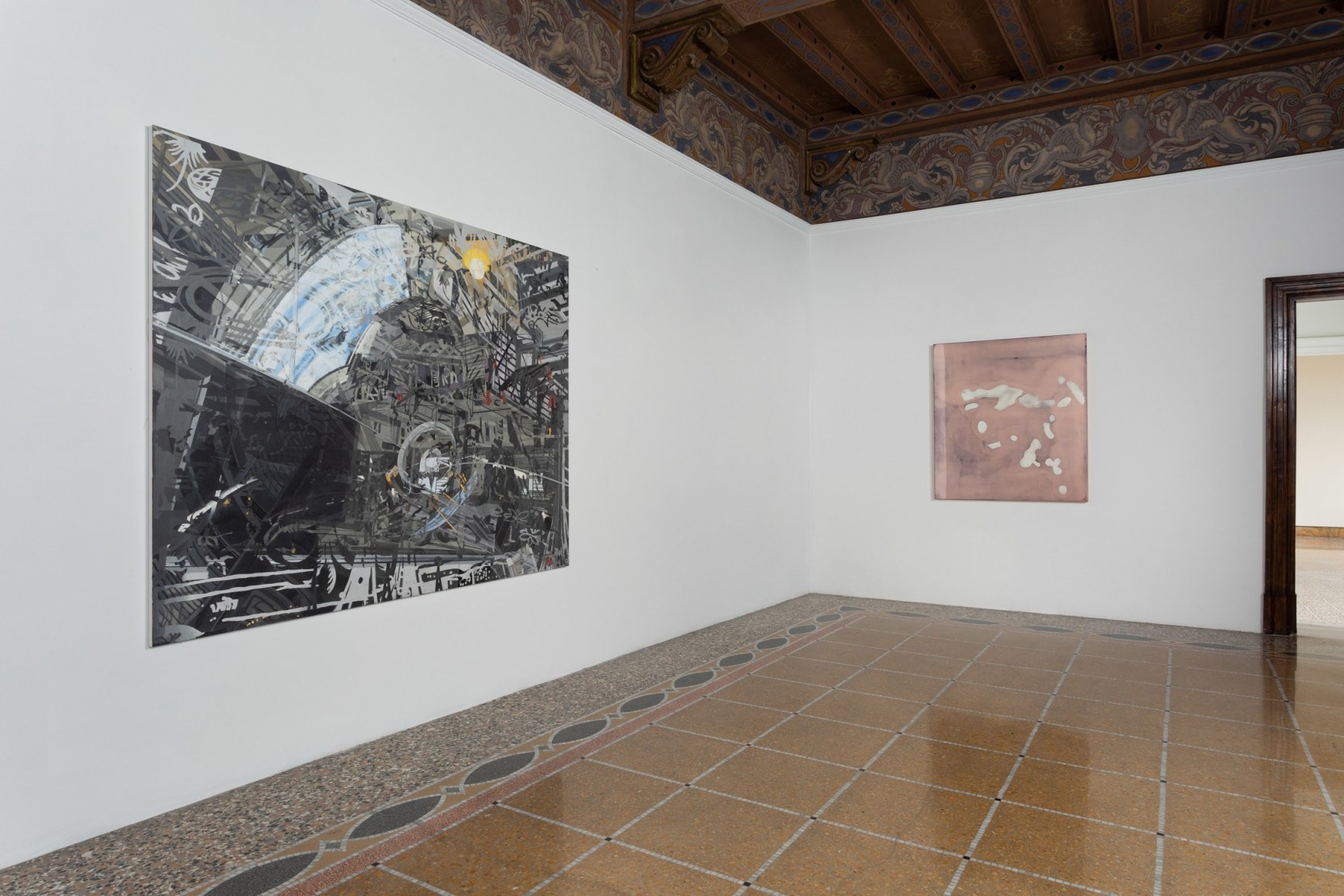Indipendenza is proud to present waters of night, a solo exhibition by the artist Pádraig Timoney curated by Gérard Faggionato.
With about thirty works including mirrors and canvases, Timoney brings to Indipendenza a new nuance of his investigation into the construction of image. From room to room we slowly enter a shadowy and foggy atmosphere, almost Dantean, as if we were gliding through the tenebrous waters of the Acheron and scrutinizing the forms bathed in mist. From the interaction between each individual work, a system of multiple reflections is created in which both the observer and the space float in a dance of appearances and disappearances: sometimes real, when we look into the mirrors, other times merely suggested, when on the contrary our gaze rests on what Timoney calls «broken mirrors»: charcoal canvases in which he has recreated the illusory effect of a mirror that, being incapable of reflection, is broken.
In this exhibition, the reflection is the image sought and found in each work through different technical procedures. Here we happily rediscover a core element of the artist’s approach to creation: the search for a synthesis among the intended image, the material on which it takes shape and the process to create it.
***
“….abating their fear, the longing fear of peasant hands that never again might grasp the plough or scatter the seed and therefore had learned to grasp the intangible, the foreboding fear of hands to whose will-to-form, robbed of the earth, nothing remained but a life of their own in the incomprehensible universe, threatened and threatening, reaching so deeply into nothingness and so gripped by its perils that the dread foreboding, lifted to a certain extent above itself, was transmuted into a mighty endeavour, an endeavour to hold fast to the unity of human existence, to preserve the integrity of human desire in a way that would protect it from disintegrating into manifold existences, full of small desires and small in desire; for insufficient was the desire of hands, insufficient the desire of eyes, insufficient the desire of hearing, sufficient alone was the desire of heart and mind communing together, the yearning completion of the infinity within and without, beholding, hearkening, comprehending, breathing in the unity of the doubled breath, the unity of the universe; for by unity alone might one overcome the lowering hopeless blindness of fearful isolation, in unity alone occurred the twofold development from the roots of understanding… “
Hermann Broch, The Death Of Virgil, 1945
***
“…he saw the Circus and the amphitheater in a turmoil with the furious playing of organs; he saw the gladiators wrestling to death for beauty’s sake, the beasts set upon men; he saw the masses jubilant with lust, crowding about a cross on which, roaring and whimpering with pain, an insubordinate slave was being nailed—the intoxication of blood, the intoxication of death, and withal the intoxication of beauty—, and he saw more and more of these crosses, saw them multiplying, lapped by the torches, licked by the flames, the flames mounting from the crackling wood and from the uproar of the crowds, a flaming ocean that closed over the city of Rome and ebbed away, leaving nothing but blackened ruins, wrecked pediments, tumbled statues, and a land grown over by weeds. He saw, and he knew it would come to pass, because the true law of reality revenged itself irresistibly on mankind, and must so revenge itself, when, being greater than any manifestation of beauty, it was bartered for beauty—plainly affronted by this, despised by being overlooked: high above the law of beauty, high above the law of the artist, which was only greedy for corroboration, there was the law of reality, there was—divine wisdom of Plato—the Eros in the urge of existence, there was the law of the heart, and woe to a world that had forgotten this last reality.”
Hermann Broch, The Death Of Virgil, 1945
(Source)




